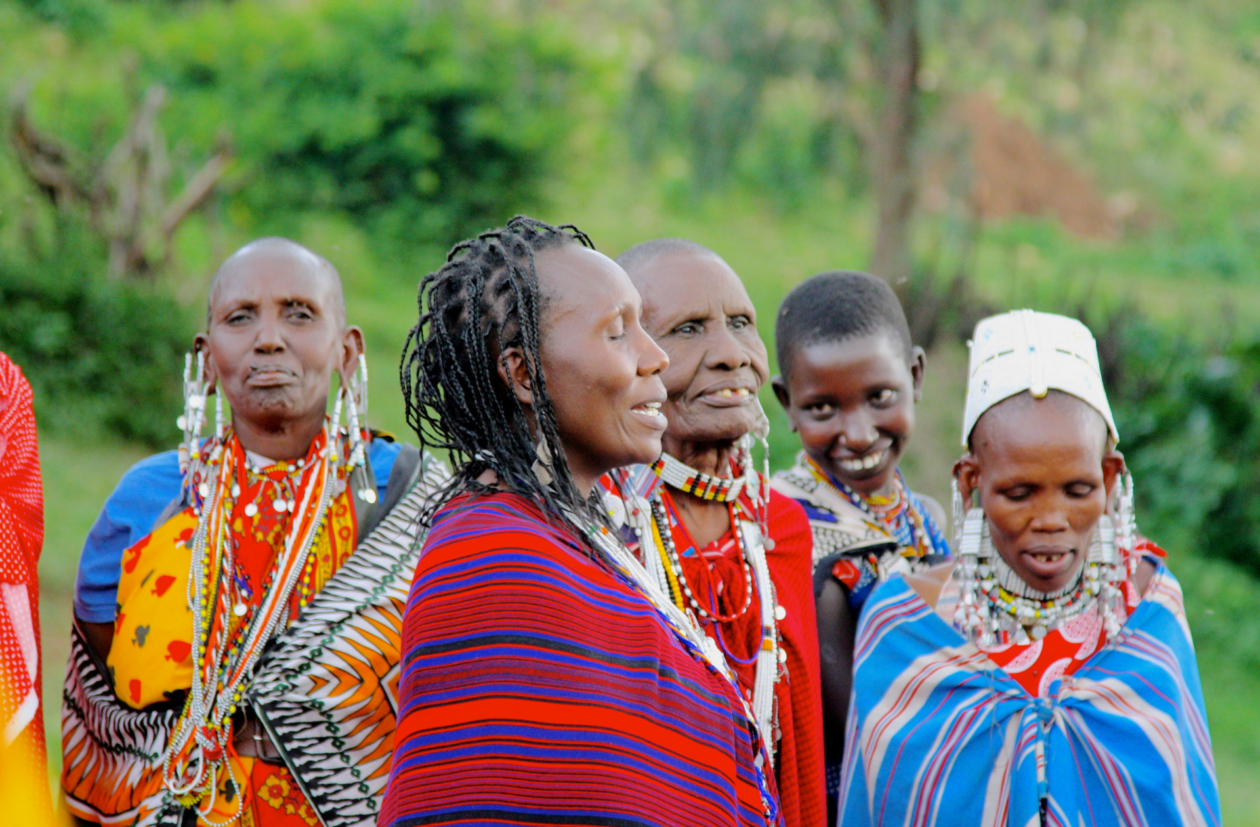
At Global Greengrants Fund, our mission is to mobilize resources worldwide to protect our shared planet and work towards a more equitable world. One of the ways in which we do this is by awarding grants to grassroots groups on the frontlines of environmental and social injustices, often to those who lack access to resources through other means. This includes women, Indigenous Peoples, youth movements, and other marginalized communities who play an essential role in advocating for, and implementing solutions that ensure a brighter future.
Today we’re pleased to share a piece written by Ole Kaunga, a Maasai volunteer advisor from Kenya who works with Global Greengrants Fund. The below piece explores his approach to grantmaking and a discussion of the role Indigenous Peoples play in the future of our planet.
Words by Ole Kaunga
Between 1990 and 1993 I was trained as a ground water technician at the Kenya Water Institute. At the time, I would join other Maasai people, many of them business people, civil servants, lecturers, and students, to talk about Maasai land welfare and Maasai historical land rights claims. These issues snowballed into a complex global debate in 1993, which was declared the International Year for World Indigenous Peoples. Since then, I have written and contributed articles and publications, and attended UN meetings, conferences and dialogues that have over time shaped, informed and sustained the Indigenous Peoples discourse in Africa and globally.
Compared to other regions of the world, Africa is lagging behind in supporting Indigenous peoples as there very few donors dedicated to granting in Africa. Some of the challenges facing indigenous peoples in Africa include the language division, barriers and fragmentation created during colonization, inadequate capacity to engage and negotiate with governments and international processes, inter-ethnic rivalries, life threatening processes such as repression and control through state militarization, poverty and impoverishment as compared to other regions, and patriarchal cultures among Indigenous peoples.
To overcome these challenges, the African Indigenous peoples movement needs to be supported through flexible grantmaking opportunities that facilitate them to shape and advance their struggles. The grantmaking needs to be robust in continuously re-evaluating their missions so that it is consistent with emerging threats and dynamic challenges facing Indigenous peoples.
Working with Indigenous peoples has several advantages – they have vast pools of cultural energy and creativity that enables them to design culturally appropriate interventions guided by their own values. Indigenous peoples also have unique capacities to form effective alliances or coalitions that are intertwined with their cultural values and livelihoods.
I’d like to share the story of the Naatum Women Group in the Laikipia Plateau, a group of resilient women at the grassroots level who are applying their traditional knowledge and commitment to address climate change. Naatum translates to “achieve” in northern Maasai language. These are women are determined to achieve their goal of restoring livelihoods threatened by the climate change risks. They are creating a new nature-based enterprise that combines beekeeping, permaculture, eco tourism, land management management and restoration to stop tree cutting, and charcoal burning. The women are committed to ensure they are represented in community land discourse and other leaders’ spaces. They are disturbed by how widows are treated and are pushing for recognition of their inheritance.
To become more responsive to the needs of Indigenous peoples, in Africa and beyond, it is important to listen to their stories, and to learn from their cultural expressions, rituals, ceremonies, experiences and also the struggles that define them. It is also important to start to make connections that link their stories to national, regional and international stories. Much of their work is tied to larger issues we face in the world, deep at the grassroots level.
Mali Ole Kaunga is a Laikipia Maasai from Kenya, the founder and Director of OSILIGI (Organisation for the Survival of IL- Laikipiak Maasai Indigenous Group Initiatives), an organization that exists to organize, build and strengthen indigenous peoples’ social movements at grassroots in northern Kenya. Ole Kaunga is also the founder and convener of PARAN (Pastoralists Alliance for Resilience and Adaptation in Northern Kenya Rangelands) a coalition of community leaders and natural resources stewards, grassroots organizations, customary institutions. Ole Kaunga has previously worked and consulted with the International Labour Organisation (ILO) as an Indigenous peoples expert for its Africa Program on Indigenous and Tribal Peoples (Convention 169). He has also worked with WIPO on issues of Maasai Cultural Heritage and UNESCO on Indigenous Traditional Knowledge and Climate Change. He has published articles on different journals in the areas of indigenous traditional knowledge, Indigenous Peoples and urbanization, Indigenous Peoples’ education and militarisation of Indigenous Peoples’ lands.
Photo credit: Rucha Chitnis
